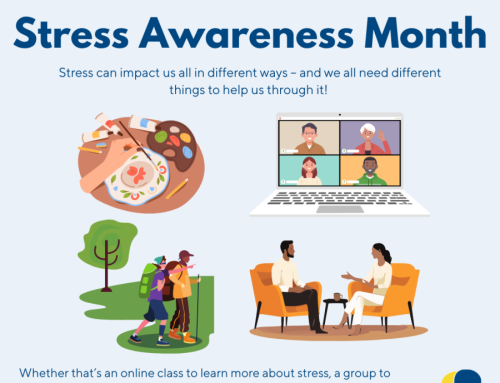The tagline isn’t entirely correct – so I’ll start by apologising for that.
Very quickly, something about me. I’ve been a housing support worker here at Touchstone for less than a year but I’ve worked with people in crisis for about five years. It amazes me how commonplace dissociative issues seem to be, yet there’s so little awareness of them. So I thought I’d write something about them here.
I said it wasn’t entirely correct to say dissociation is “hidden”. In people who have experienced a single incident of trauma, any dissociation may be pretty apparent – perhaps they are reliving a traumatic event such as an attack or war experience: You can tell something’s going on.
This may have come about because the mind has developed really amazing ways to protect us. It can split off painful experiences into hidden parts of the brain, so the person not only forgets the event, but also feels no pain related to it. Very nifty. That is, until something brings this experience back in a flash – which is when we might see someone behaving as if it’s all happening over again.
So when is it “hidden”? Well, for those who suffered traumas multiple times, the brain may have split and split in an attempt to hide away the pain, until the point where the person’s “consciousness” is so fragmented that they no longer have a single identity; they may have several, or dozens, that they switch between on a regular (or irregular) basis.
In case this is starting to sound like a Hollywood movie, consider your own experiences that may help you relate to the concept of dissociation. At the mild end of the spectrum, it’s getting stuck into your favourite soaps; checking Facebook; driving somewhere and not noticing the journey; dancing to your favourite songs; or enjoying a walk through the dales with the dogs running off in the distance – only to notice that half an hour (or more) has passed. In that half an hour, you were in an altered state. You may remember it, but perhaps time passed more quickly than if you’d been sat waiting to use the toilet – something that’s much harder to “switch off” from!
The difference between these everyday experiences, and those for someone at the other end of the spectrum (where dissociation becomes an issue), is that those at the other end don’t come back to the “here and now” when the doorbell rings; or when their name is called; or when the brake lights of the car in front come on.
In this way, they may lose chunks of time; chunks of their life. They won’t necessarily have “joined up” memories of everything that happened before now.
Imagine that someone tells you they met you before, but you don’t remember them. Perhaps you’ve got cuts or marks on your body, but no idea how you got them. Or maybe you think you’re an adult but you keep finding children’s toys in your possession.
People who experience life like this get so used to it happening, that they just go along with it. It’s easier than explaining it to a world that doesn’t get it. They get used to finding themselves without keys, shoes, jackets, and not knowing where they are, or what time of day it is, or who the stranger opposite is.
And in this way, these issues are hidden; pretending that everything is fine is easier than explaining their experience to others; easier than explaining their disjointed experience to statutory mental health professionals, who in this day and age (Winter 2015) often do not seem to be aware of these kinds of issues and instead may label them as “unwilling to engage” and having “personality disorder traits”, instead of seeing that the person just doesn’t have a clue where they will find themselves from one moment to the next.
But it’s not just for statutory workers; it’s all our responsibility to become trauma informed, rather than just focussing on the obvious self-harm or depressive symptoms in front of us.
Thankfully, more and more high profile figures are spreading the word. Bradford based psychologist Rufus May recently wrote a blog post on dissociation in which he encourages us all to talk about it more. Maybe you could do the same within your team, family or social circle.
But if you take only one thing from this post, I hope that it’s this: dissociation is a normal reaction to abnormal experiences; and the person doesn’t have control over it.





